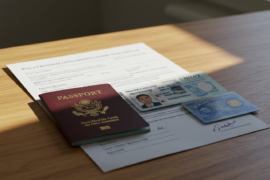This article may contain references to products or services from one or more of our advertisers or partners. We may receive compensation when you click on links to those products or services. Nonetheless, our opinions are our own.
- Understanding the Financial Hangover of a Party Lifestyle
- Recognizing the Hidden Costs of Socializing Excessively
- Creating a Balanced Spending Plan for Your Social Life
- Finding Free and Low-Cost Alternatives for Fun and Connection
- Investing in Your Future: Prioritizing Savings Over Nights Out
- The Importance of Recognizing Partying Addiction
- Frequently Asked Questions
- Recommended Reads
Understanding the Financial Hangover of a Party Lifestyle
Embracing a party lifestyle may seem liberating and fun, but the aftermath can seriously dent your finances. If you’re waking up to regret after nights filled with spontaneous rounds of drinks, overpriced entry fees, and late-night food runs, you’re not alone. It’s easy to get caught up in the moment, but the costs accumulate rapidly, resulting in a financial hangover that can take months to recover. You may find yourself trapped in a cycle where you’re constantly scrambling to make ends meet, all because of those fleeting moments of joy that, in hindsight, weren’t worth the price tag.
Triggers That Can Lead to a Financial Headache
- Impulse Spending: Late-night decisions often involve splurging on things you wouldn’t usually buy.
- Credit Card Debt: Charging your party expenses can create a debt spiral if not managed carefully.
- Missed Opportunities: Investing in experiences over necessities can mean sacrificing long-term financial goals.
A breakdown of typical monthly costs related to a party lifestyle can be revealing:
| Expense | Average Cost |
|---|---|
| Drinks at bars | $200 |
| Cover charges | $50 |
| Late-night food | $100 |
| Transportation | $75 |
When you add these costs together, you could look at over $400 a month—a figure that adds up quickly and pulls your finances down. It’s crucial to reflect on how these expenditures align with your financial goals, urging you to rethink your choices and consider less expensive ways to enjoy life while still being mindful of your budget.
When you think about fun nights out, it’s easy to overlook the costs that pile up behind the scenes. Those spontaneous party invitations and late-night escapades can add a surprising burden to your wallet. Each round of drinks, entry fee, and late-night snack contributes to an often-unrecognized financial drain. Moreover, the toll of this lifestyle goes beyond your bank account. Consider the long-term implications:
- Prospect Costs: Each dollar spent on nightlife could have been saved or invested, providing future security.
- Health Costs: Frequent partying can lead to increased healthcare expenses from stress, poor nutrition, and lack of sleep.
- Lost Productivity: Hangovers and fatigue can impact work performance, potentially jeopardizing career advancement and earning potential.
To put things into perspective, here’s a simple breakdown of how socializing excessively can impact your finances:
| Monthly Expenses | Estimated Cost |
|---|---|
| Nights out (4 x $50) | $200 |
| Drinks (4 x $30) | $120 |
| Food (4 x $25) | $100 |
| Total Monthly Cost | $420 |
By re-evaluating your social habits, you can reclaim that cash flow for savings or investments—making a meaningful difference in achieving your long-term financial goals.
To cultivate a financially healthy social life, start by identifying essential monthly expenses. This approach will help you prioritize how much you can comfortably spend on outings without compromising your savings goals. Consider creating a simple spending chart to visualize where your money is going:
| Category | Budgeted Amount | Actual Amount |
|---|---|---|
| Dining out | $100 | $90 |
| Entertainment | $80 | $75 |
| Transportation | $50 | $45 |
Next, set realistic limits on discretionary spending. You might want to allocate a percentage of your budget specifically for social activities. Try to stick to 10-15% of your monthly income for social outings. This allows you to enjoy time with friends while building a solid financial foundation. Planning for events and finding alternatives—like potluck dinners or free community activities—can help keep costs down and ensure your social life is enjoyable and enduring.
Finding Free and Low-Cost Alternatives for Fun and Connection
It’s a common misconception that fun and connection require splurging on expensive outings or extravagant parties. In reality, you can cultivate joy and community without breaking the bank. Try exploring local parks or community centers that often host free events like movie nights, concerts, or outdoor activities. Gathering your friends for a potluck can also evoke the warmth of socializing without the hefty price tag of eating out. Consider these alternatives:
- Game Nights: Host board game or video game nights with friends.
- Outdoor Adventures: Plan hikes, picnics, or beach days at no cost.
- Cultural Exploration: Visit free local museums or art galleries on special days.
If you prefer the vibrancy of group outings, check out community events on platforms like Meetup or Eventbrite. Many local organizations offer workshops, book clubs, and fitness classes that are either free or low-cost. By seeking out these options, you’ll save money, enhance your social life, and meet new people in your area.
Investing in Your Future: Prioritizing Savings Over Nights Out
Considering how much you spend on nights out, realizing that those expenses add up quickly is essential. Each dinner, drink, and cover charge is not just a fleeting moment of fun; it’s money that could be working for you. You’re laying the groundwork for your future financial security by prioritizing savings over spontaneous outings. While it’s important to enjoy life, putting yourself in a position where you don’t have to stress over bills or debt in the long run is crucial.
Consider creating a savings plan that allocates a portion of your income to a dedicated savings account each month. You might be surprised at how quickly that money accumulates. Here’s a simple breakdown of how your spending choices can affect your savings:
| Expense | Weekly Cost | Annual Cost |
|---|---|---|
| Nights out | $100 | $5,200 |
| Savings alternative | $100 | $5,200 |
By swapping just one night out a week for a cozy evening at home, you’ll have more saved by the end of the year. Utilize that extra cash to invest in things that will benefit you in the long haul, like an emergency fund or a retirement account. Investing in yourself today means financial freedom tomorrow.
The Importance of Recognizing Partying Addiction
Partying addiction can have a significant impact on both your mental well-being and financial stability. Recognizing the signs of excessive partying and its effects on your wallet is essential. Constantly splurging on nights out, drinks, and other party-related expenses can quickly drain your bank account. Setting boundaries and a budget for social activities is crucial to maintaining a healthy balance between social life and financial security.
Strategies for Overcoming Partying Addiction
- Self-awareness: Acknowledge and understand your triggers for excessive partying.
- Set boundaries: Establish limits on how frequently you go out and spend on social activities.
- Seek support: Surround yourself with friends who support your goal of cutting back on partying.
- Find alternatives: Explore hobbies or interests that provide fulfillment without draining your finances.
- Professional help: Consider therapy or counseling to address underlying issues driving your partying habits.
Frequently Asked Questions
Why is partying considered detrimental to financial health?
Partying often involves spending money on food, drinks, and entertainment, which can add up quickly. Frequent outings can lead to overspending, and when that becomes a habit, it can disrupt your overall budget and financial goals.
Beyond the apparent expenses like cover charges and drinks, there are hidden costs such as transportation, late-night food, potential hangover remedies, and the impact on productivity if the next day is affected.
How does partying impact long-term financial goals?
Frequent partying can lead to neglecting savings or investment efforts, making it harder to build wealth over time.

Reviewed and edited by Albert Fang.
See a typo or want to suggest an edit/revision to the content? Use the comment form below for feedback.
At FangWallet, we value editorial integrity and open collaboration in curating quality content for readers to enjoy. Much appreciated for the assist.
Did you like our article and find it insightful? We encourage sharing the article link with family and friends to benefit as well - better yet, sharing on social media. Thank you for the support! 🍉
Article Title: Party Now, Broke Later? How Partying Wrecks Your Finances
https://fangwallet.com/2025/03/22/partying-and-finances/The FangWallet Promise
FangWallet is an editorially independent resource - founded on breaking down challenging financial concepts for anyone to understand since 2014. While we adhere to editorial integrity, note that this post may contain references to products from our partners.
The FangWallet promise is always to have your best interest in mind and be transparent and honest about the financial picture.
Become an Insider
Editorial Disclaimer: The editorial content on this page is not provided by any of the companies mentioned. The opinions expressed here are the author's alone.
The content of this website is for informational purposes only and does not represent investment advice, or an offer or solicitation to buy or sell any security, investment, or product. Investors are encouraged to do their own due diligence, and, if necessary, consult professional advising before making any investment decisions. Investing involves a high degree of risk, and financial losses may occur including the potential loss of principal.
Source Citation References:
+ Inspo
There are no additional citations or references to note for this article at this time.











































